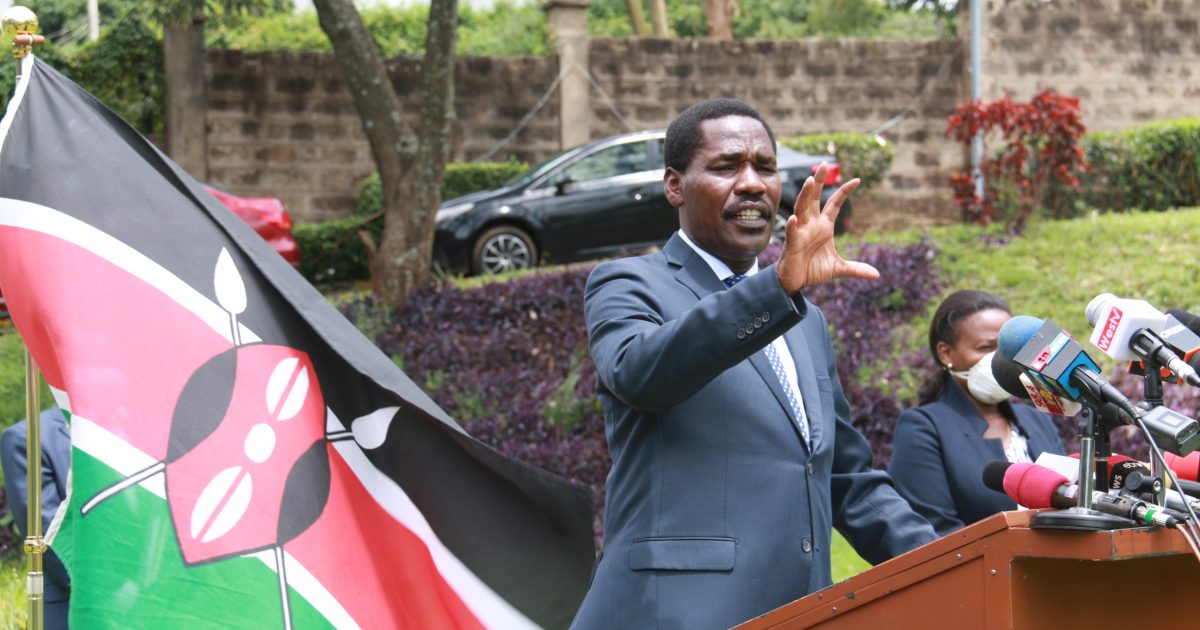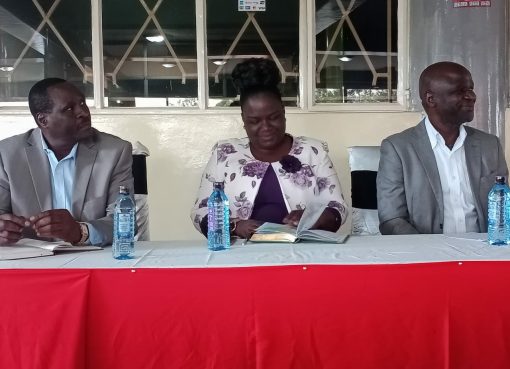The government has launched coffee revitalization project that will focus on increasing coffee production.
The ministry of Agriculture has partnered with World Bank to implement the programme to a tune of Ksh 1.5 billion concessional loan in phase one in two years.
Speaking today during the launch of the project, Agriculture livestock, Fisheries and Cooperative Cabinet Secretary, Peter Munya said the programme will not only increase coffee production but will improve efficiency of farmer cooperatives support research development and technology as well as development of alternative coffee markets.
“Phase one of the programme which is a pilot will cover the main 8 coffee producing counties which include Kiambu, Machakos, Muranga, Nyeri, Kirinyanga, Embu , Tharaka Nithi and Meru”, he said
The World Bank (WB) fund comes one year after the Ksh 3 billion coffee cherry advance revolving fund that was launched by the Government to support farmers largely to boost production.
The fund is currently being advanced to growers at a modest rate of three per cent by the New Kenya Planters Cooperative Union (NKPCU).
The project programme is being undertaken through ongoing WB projects – the National Agricultural and Rural Inclusive Growth Projects (NARIGP) and the Kenya Climate Smart Agriculture Project (KCSAP).
“The pilot counties account for about 70 per cent of the national coffee production and have potential for quick wins through productivity increased”, the CS said adding that Counties have also agreed to inject additional investment to the coffee project with smallest producers of Tharaka Nithi and Machakos injecting Ksh 50 million while the big producers will invest Ksh 100 million.
CS Munya confirmed that 20 per cent of the fund will be committed to provision of subsidized fertilizer and propagation of seeds and distribution of coffee planting materials and Ksh 900 million accounting 60 percent will used to finance enhancing of efficiency of primary coffee processing infrastructure and quality of coffee through automation of cooperative systems and modernization equipment.
The CS added that 10 per cent representing Ksh150 million will strengthen cooperatives institution and Governance and other 10 percent will support integration of data base , monitoring and backstopping.
The CS called upon County Governments, state agencies and all stakeholders to support the cause and ensure resources are well utilized and the coffee subsector regains its former glory of being the leading foreign exchange earner in the country.
Kenya has an estimated 700,000 small holder growers and 3,000 coffee estates involved in coffee production within 33 coffee producing Counties. The governments initiatives come even as the country has had challenges and experiencing a steady decline of coffee production from 130,000 Metric tonnes of clean coffee to an average of 40,000 metric tonnes annually coupled with low productivity of 2kgs tree per year against an annual potential of 35kgs /tree,
The Presidential Coffee Task force report of 2016 recommended interventions in the coffee sector based on 8 pillars to address the challenges and the Coffee Revitalization Action Plan is what todays programme is based.
By Wangari Ndirangu





